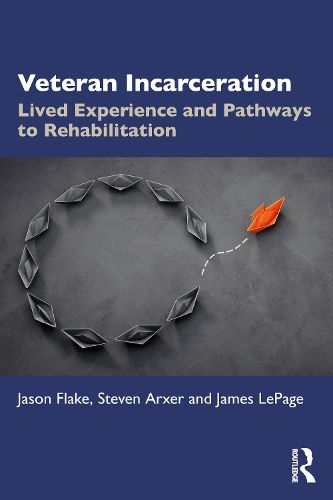Readings Newsletter
Become a Readings Member to make your shopping experience even easier.
Sign in or sign up for free!
You’re not far away from qualifying for FREE standard shipping within Australia
You’ve qualified for FREE standard shipping within Australia
The cart is loading…






Through qualitative interviews with formerly incarcerated veterans, this book focuses on the lived experiences, and behaviors associated with the incarceration, of veterans. Guided by the life-course perspective, the authors have identified novel turning-point behaviors linked with incarceration. They provide an in-depth and nuanced understanding of veteran incarceration, blend veteran-centric behaviors with known incarceration factors (i.e., substance use and mental health disorders), and provide a glimpse into how these behaviors interact with other known factors (i.e., homelessness and unemployment). Understanding veterans' lived experiences with incarceration can provide policy makers and practitioners with the foundation for disrupting the incarceration cycle and positively impacting mental health and substance use problems, homelessness, and unemployment. The authors discuss social and health policy implications and provide recommendations on future research on veteran populations. This volume is enlightening and inspiring for researchers and scholars in public health, social work, and sociology/criminal justice programs, as well as all policymakers and practitioners concerned with veterans' adjustment to civilian life.
$9.00 standard shipping within Australia
FREE standard shipping within Australia for orders over $100.00
Express & International shipping calculated at checkout
Stock availability can be subject to change without notice. We recommend calling the shop or contacting our online team to check availability of low stock items. Please see our Shopping Online page for more details.
Through qualitative interviews with formerly incarcerated veterans, this book focuses on the lived experiences, and behaviors associated with the incarceration, of veterans. Guided by the life-course perspective, the authors have identified novel turning-point behaviors linked with incarceration. They provide an in-depth and nuanced understanding of veteran incarceration, blend veteran-centric behaviors with known incarceration factors (i.e., substance use and mental health disorders), and provide a glimpse into how these behaviors interact with other known factors (i.e., homelessness and unemployment). Understanding veterans' lived experiences with incarceration can provide policy makers and practitioners with the foundation for disrupting the incarceration cycle and positively impacting mental health and substance use problems, homelessness, and unemployment. The authors discuss social and health policy implications and provide recommendations on future research on veteran populations. This volume is enlightening and inspiring for researchers and scholars in public health, social work, and sociology/criminal justice programs, as well as all policymakers and practitioners concerned with veterans' adjustment to civilian life.